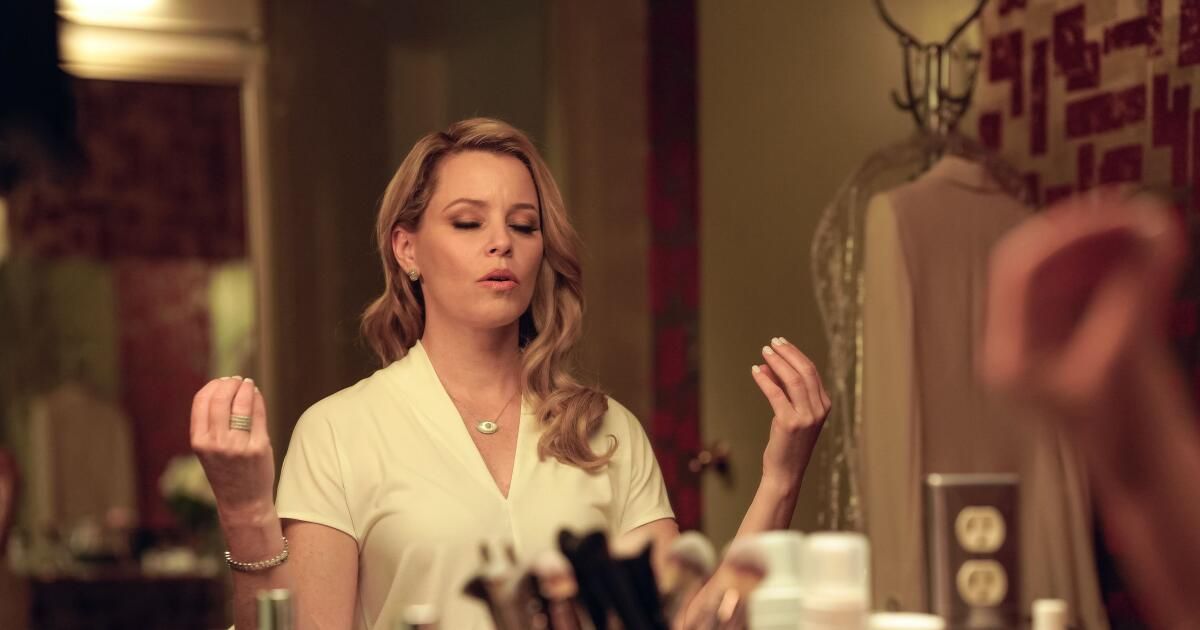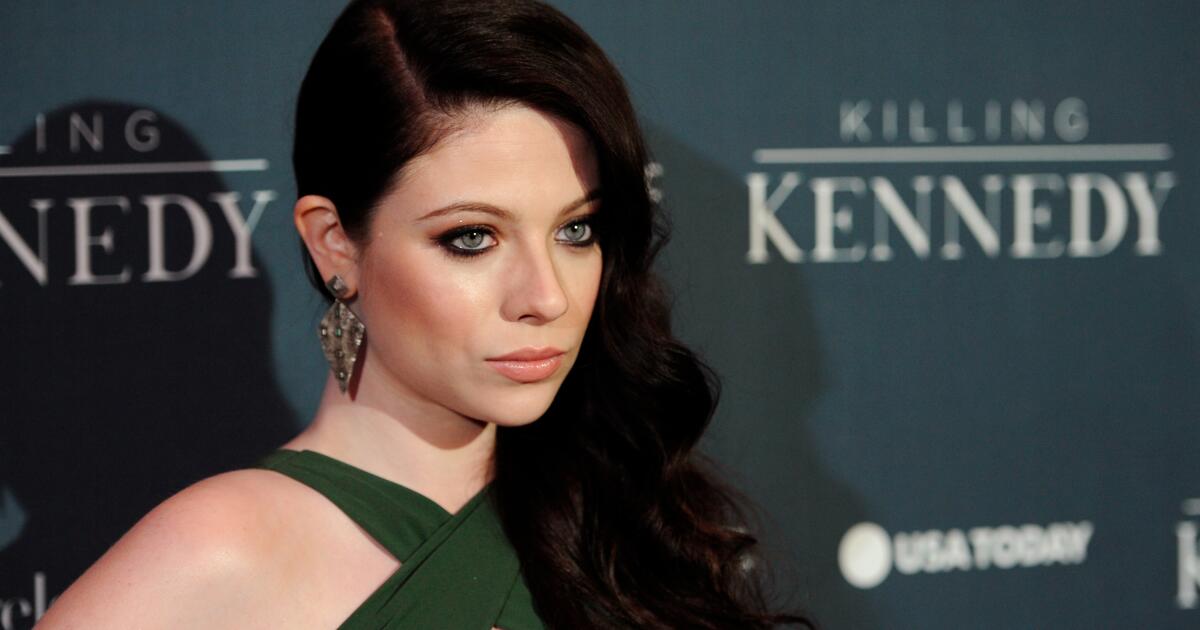Director Austin Peters makes his feature debut with “Skincare,” a Los Angeles noir set in the beauty industry, starring Elizabeth Banks as a celebrity beautician whose reputation crumbles around her over the course of two weeks. The film is reminiscent of other dark, salacious thrillers that satirize a seemingly image-obsessed city (think “Nightcrawler” or even “American Gigolo”), and Peters handles the style and tone of this subgenre with skill.
The sunny Los Angeles of “Skincare” is not the glittering, golden fantasy we often see on screen, an escapist fantasy of impossible beauty. No, the light in “Skincare” is harsh and revealing: bright UV rays, fluorescent bulbs and neon signs falling on the face of Hope Goldman (Banks), an aesthetician with a high-profile client list who is on the cusp of breaking through to stardom with her own skin-care line.
Hope has been desperate to keep up appearances with her product launch, taping a TV segment that she hopes will catapult her to fame and fortune – but, as we discover, her finances are in disarray. She’s behind on the rent for her shop and spa at the iconic, kitsch Crossroads of the World resort in Hollywood, and when a competing beautician, Angel (Luis Gerardo Mendez), opens up shop on her turf, an already exhausted Hope begins to unravel.
But Hope’s downfall isn’t entirely her fault: a mysterious stalker begins to interfere with her reputation, sending her creepy text messages with videos of Hope attached, hacking her email and slashing her tires. Hope turns to her only allies, a group of lecherous men that includes a TV news anchor (Nathan Fillion), her mechanic (Erik Palladino) and a new friend, Jordan (Lewis Pullman), an enthusiastic young life coach.
Elizabeth Banks and Lewis Pullman in the film “Skincare”.
(IFC Movies)
“Skincare” becomes a two-character movie, alternating between the hesitant Hope and the equally hesitant Jordan, who desperately wants to be seen as a hero. Pullman is delightfully slimy as a delusional, unhinged narcissist, high on his own fountain of motivational word salad that he spits into his laptop camera. He’s a descendant of Tom Cruise’s “Magnolia” character, Frank T.J. Mackey, but with all the wit of one of Michael Bay’s dimwitted “Pain & Gain” crew members.
Banks, on the other hand, brings a mean, tough streak to the struggling Hope. Though she’s a victim here, she’s not entirely sympathetic, and Banks tiptoes that fine line carefully. There’s a hint of schadenfreude here, as she cares more about what people think and how she looks than anything else. Her own assumptions and accusations add to the accumulation of miscommunication that leads to destruction in “Skincare.”
Banks and Pullman’s portrayals of these tragicomic characters elevate what could have been a mere genre exercise into something more fascinating and satirical. The script, written by Peters with Sam Freilich and Deering Regan, is less interesting. The coincidences and twists fit, but there’s no deeper reason why this story had to be set in the beauty industry, except that it’s a business built on facades, fantasy and seeming frivolity. “Skincare” doesn’t delve into any of these themes in any meaningful way. There’s also no discernible reason why this story is set in 2013, except that it makes it seem a little dated and cheesy; the diegetic songs by Maroon 5 and Katy Perry that are woven throughout the film lend it wry humor and a sense of time, but this movie didn’t have to be a period piece.
Despite the limitations of his script, Peters (as Hope) is a master of aesthetics, and together with cinematographer Christopher Ripley and editor Laura Zempel, he has created a compelling, seedy 1980s-style thriller, or at least a convincing copy of one. The story may be only superficial, but Banks and Pullman find something truly hopeless in these superficial pleasures.
Katie Walsh is a film critic for the Tribune News Service.
'Skin care'
Qualification: R for sexual content, graphic nudity, strong language, some violence and brief drug use.
Duration: 1 hour, 34 minutes
Playing: In wide release












